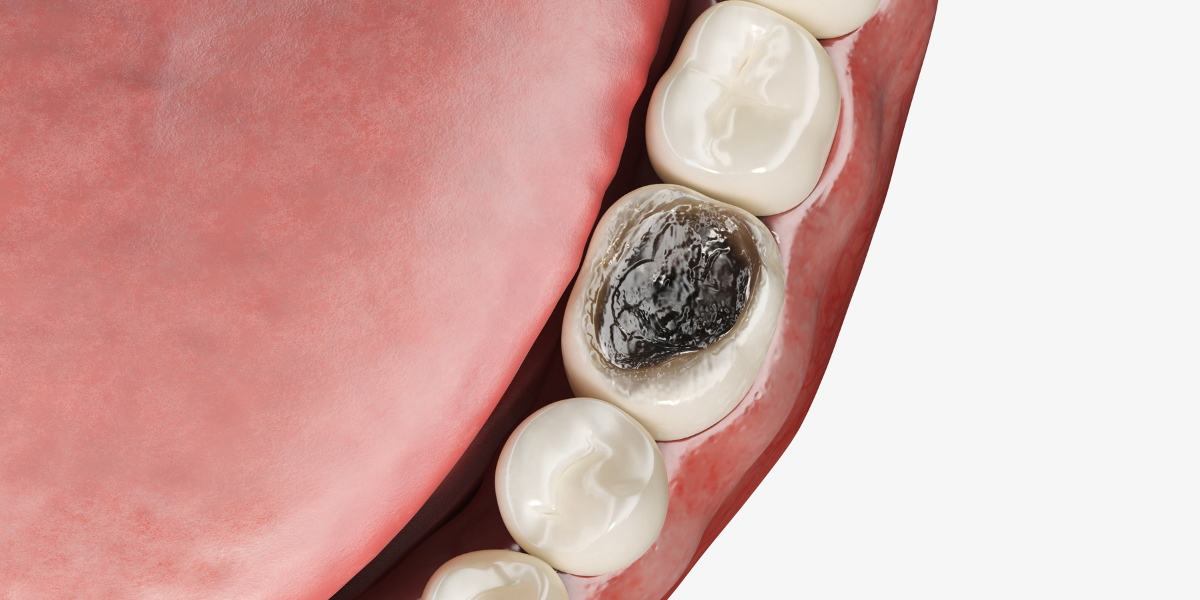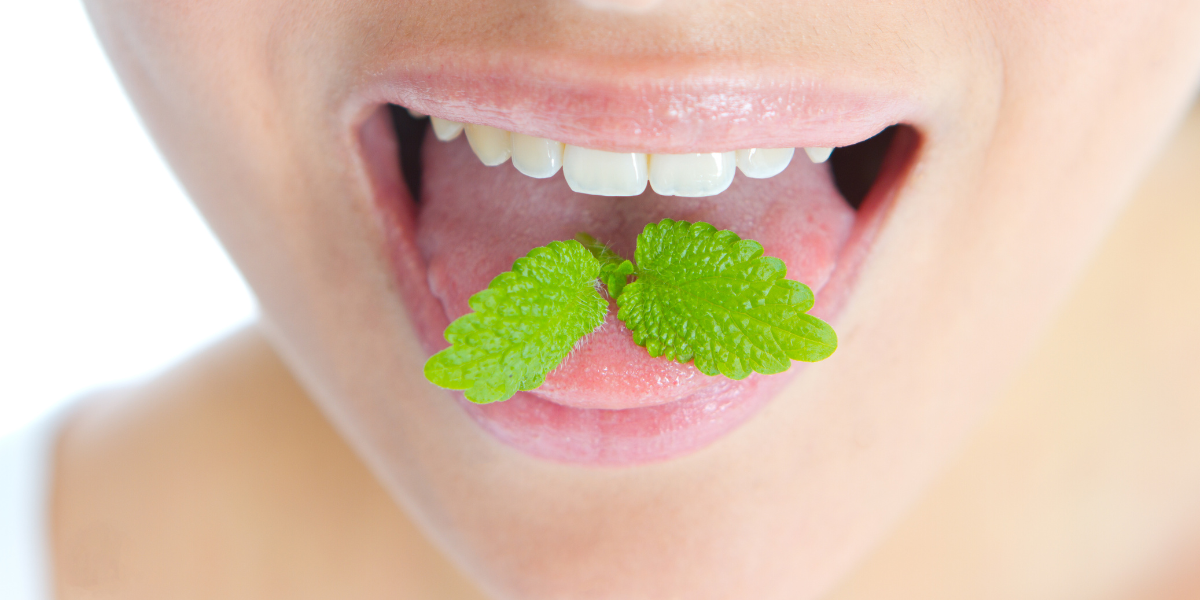
How to eliminate bad breath when brushing and mouthwash alone don’t work.
Do you notice bad breath even though you’ve been regularly brushing your teeth? Have you tried every mouthwash, mint & paste on the market with no success? You’re not alone – an estimated 1 out of 4 people globally suffer from chronic bad breath[3]. This can be an ongoing struggle for many people if the root cause is not addressed [2].
The #1 Cause of Bad Breath
Bad breath, or halitosis, is most commonly caused by the breakdown of leftover food not removed by routine brushing and flossing[5]. Plaque builds up on the surface of your teeth & bacteria grows, producing an unpleasant odor. In most cases, brushing & flossing removes the food and the plaque, eliminating bad breath[1].
Other Common Causes of Bad Breath
- Tobacco use – associated with increased gum disease leading to bad breath[5].
- Dry mouth – which can occur naturally through dehydration (ie, morning breath), due to some medications, or due to open-mouth sleeping. The consequence is lack of saliva, which is responsible for cleaning debris from the mouth, which produces odor[2].
- Dentures – can harbor bacteria & food waste if not cleaned regularly & thoroughly[1].
- Illness – Respiratory infections found in your mouth, nose, and lungs, such as bronchitis, sinusitis, or even post nasal drip from the common cold, can have a direct effect on breath. Other types of illness like Diabetes, gastrointestinal disorders, and liver/kidney diseases can also contribute[4].
Oral Microbiome & Bad Breath
For those suffering from a more chronic issue, the cause may be due to imbalance of the bacterial microbiome. Your mouth is home to hundreds of types of bacteria, the composition of which is specific to you & closely associated with primary childhood caregivers & influenced in adulthood by a variety of lifestyle factors including diet. Based on this combination of factors, some people are more prone to bad breath.
If we suffer from chronic bad breath, our inclination may be to wipe out all the bacteria & their byproducts. But recent studies in microbiology suggest that antiseptic mouthwashes & products disrupt the important bacterial composition & dry the mouth, creating a vicious cycle of bad breath and other issues[3].
New research encourages preservation of the microbiome & looks for solutions to tweak the balance in targeted ways, such as mouthwashes that simply neutralize the stinky sulfur compounds produced by bad bacteria, or to dental probiotics which deter the growth of harmful bacteria in favor of a more healthy composition [3].
How to Stop Bad Breath
- Brush at least twice per day.
- Floss to remove debris between teeth.
- Visit the dentist for regular cleaning exams.
- Clean dentures & dental restorations daily to prevent bacterial growth & transfer to the mouth.
- Change the toothbrush or toothbrush head every 2-3 months.
- Stay hydrated & chew sugarless gum to promote saliva production[4].
- Maintain a healthy diet that provides a wide range of nutrients & is free of excess sugar[5].
- Daily dental (oral) probiotic to shift the natural balance of good bacteria, reducing unpleasant gasses production long term[3].
References
- Bad Breath Causes – American Dental Association. (n.d.). Retrieved October 21, 2022, from https://www.mouthhealthy.org/en/az-topics/b/bad-breath
- Bad breath – Symptoms and causes.(2018, March 10). Mayo Clinic. Retrieved October 21, 2022, from https://www.mayoclinic.org/diseases-conditions/bad-breath/symptoms-causes/syc-20350922
- Franklin, D. (2013, May 1). To Beat Bad Breath, Keep the Bacteria in Your Mouth Happy. Scientific American. Retrieved October 21, 2022, from https://www.scientificamerican.com/article/beat-bad-breath-keep-mouth-bacteria-happy/?error=cookies_not_supported&code=61ea386d-70a6-4296-b388-7648469a78c4
- Halitosis (Bad Breath). (2020, February 28). Johns Hopkins Medicine. Retrieved October 21, 2022, from https://www.hopkinsmedicine.org/health/conditions-and-diseases/halitosis-bad-breath
- Newman, T. (2018, January 10). Everything you need to know about bad breath. Retrieved October 21, 2022, from https://www.medicalnewstoday.com/articles/166636








